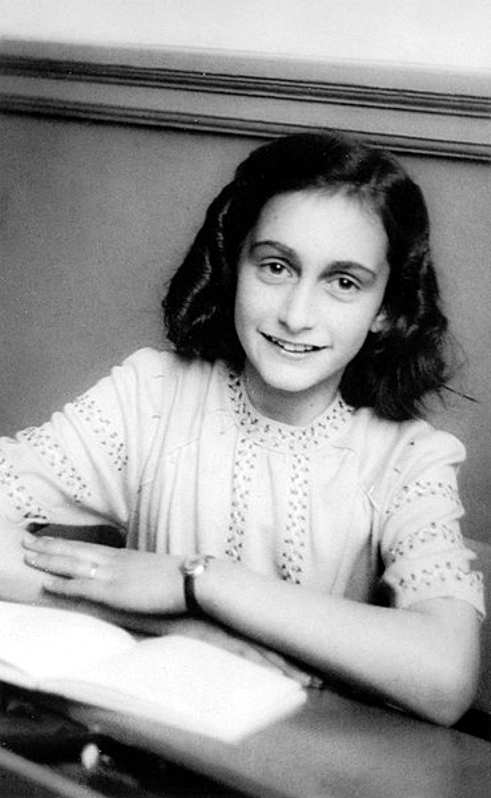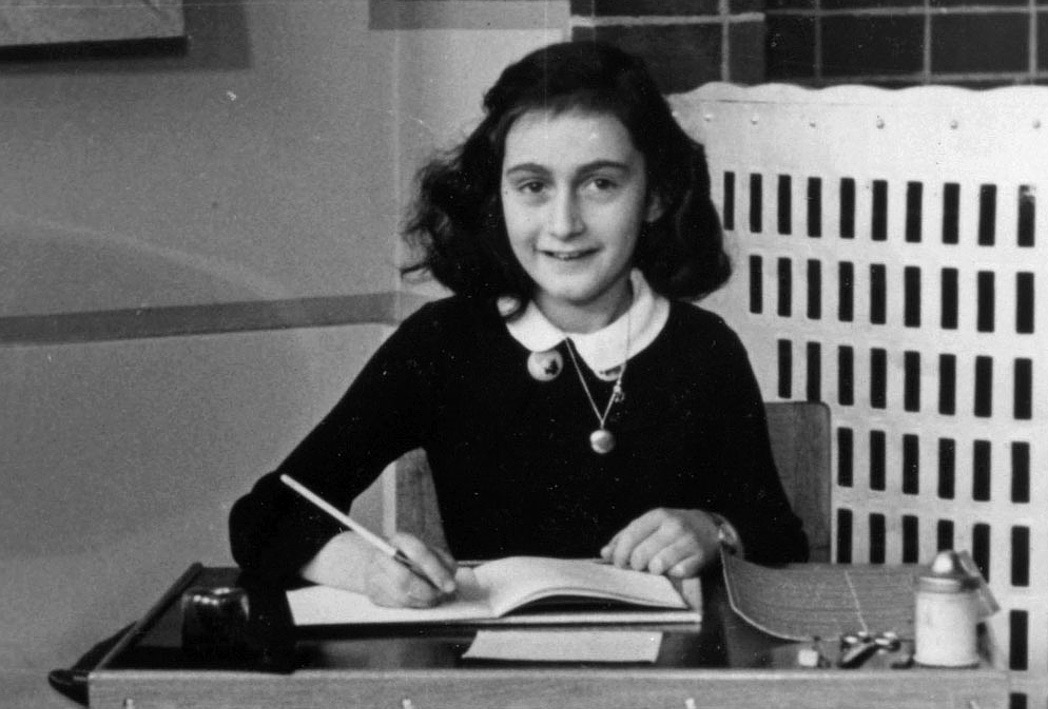On June 12, 1929, in Frankfurt, Germany, a little girl was born to Otto and Edith Frank. They named her Annelies Marie Frank — Anne, for short.
Her early years were filled with books, laughter, and the gentle rhythms of family life. But by the time she turned five, the world around her was changing.
Adolf Hitler had risen to power, and for Jewish families like the Franks, Germany was no longer safe.
In 1934, they fled to Amsterdam, hoping to find peace.
A Childhood Interrupted
Anne was like any other teenager — lively, mischievous, full of dreams. She adored movie stars, wrote in her diary, and giggled with friends.
“I can shake off everything if I write; my sorrows disappear, my courage is reborn.”
But in May 1940, Germany invaded the Netherlands. New laws stripped Jews of their rights. Anne could no longer go to her favorite cinema, ride her bicycle, or attend her school freely.
The world was shrinking around her.
The Secret Annex
On July 6, 1942, after her sister Margot received a call-up notice to report to a labor camp, the Frank family went into hiding. They moved into a secret annex above Otto Frank’s office — hidden behind a movable bookcase.
There they lived with four others, in silence during the day, whispering after dark, always fearing the sound of boots on the street below.
Anne poured her heart into her red-checked diary, writing as if to a friend she called “Kitty.”
“In spite of everything, I still believe that people are really good at heart.”
Her words captured not only the daily hardships of confinement, but also her fierce hope, her dreams of becoming a writer, and her unbroken faith in humanity.
The Betrayal
For two years, the annex remained their fragile world. But on August 4, 1944, the Gestapo stormed the hiding place. Someone had betrayed them.
Anne, Margot, and their mother Edith were deported first to Westerbork transit camp, then to Auschwitz. Finally, Anne and Margot were sent to Bergen-Belsen concentration camp.
In early 1945, just weeks before the camp was liberated, Anne died of typhus. She was fifteen years old. Margot died days earlier. Edith had perished in Auschwitz.
The Diary Lives On
Otto Frank, the only survivor of the family, returned to Amsterdam after the war. Among the ruins, he found Anne’s diary, preserved by Miep Gies, one of the brave helpers who had sheltered them.
When Otto read his daughter’s words, he realized they were more than the scribblings of a teenager. They were the voice of a generation silenced too soon.
“We all live with the objective of being happy; our lives are all different and yet the same.”
In 1947, The Diary of a Young Girl was published. It has since been translated into more than seventy languages, read by millions, and has become one of the most powerful testimonies of the Holocaust.
The Legacy of Anne
Anne Frank never saw the future she dreamed of — a world where she might be a writer, a journalist, a woman who told stories. But in a way, she achieved it. Her diary became her book. Her words reached the world.
“Whoever is happy will make others happy too.”
Anne’s life was brief, but her voice is eternal. From the small room of the annex to classrooms and libraries across the globe, she reminds us what it means to hold on to hope — even in the darkest of times.
“How wonderful it is that nobody need wait a single moment before starting to improve the world.”
Anne Frank’s diary is more than history — it is humanity speaking from the heart of suffering.
Her courage in confinement and her enduring faith in goodness turn her into not only a victim of war but also a timeless teacher of hope, resilience, and compassion.
Anne Frank remains, as she wished, alive in her words — a symbol of light that war could not extinguish.

“It’s really a wonder that I haven’t dropped all my ideals, because they seem so absurd and impossible to carry out. Yet I keep them, because in spite of everything, I still believe that people are really good at heart.”
“The best remedy for those who are afraid, lonely or unhappy is to go outside, somewhere where they can be quite alone with the heavens, nature and God.
Because only then does one feel that all is as it should be and that God wishes to see people happy, amidst the simple beauty of nature.
As longs as this exists, and it certainly always will, I know that then there will always be comfort for every sorrow, whatever the circumstances may be. And I firmly believe that nature brings solace in all troubles.”
― The Diary of a Young Girl
